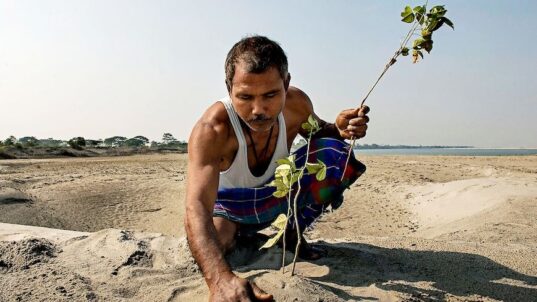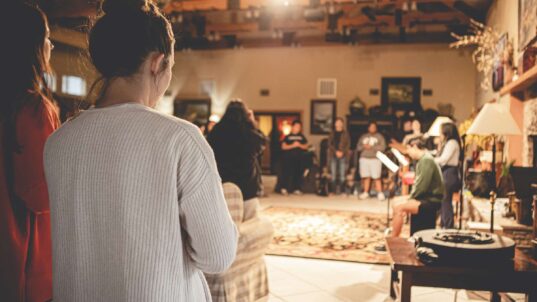Films & Conversation Series Exploring LGBTQ+ Conversations Across Generations
On Friday afternoon, November 5th, we convened the first of three films and conversations events about LGBTQ+ Generations. Without being too “meta” about it, in this first session we explored how and with whom we talk about LGBTQ+ issues and how those discussions and society have changed over the years. The LGBTQ+ Generations Gap film that we watched at the start of this session inspired some of our conversations, but those conversations generally went beyond the film as well. Please see below for a summary listing of some of the ideas we explored in this first session.
This was the first of three events in our LGBTQ+ Generations: films & conversation series. Please register via the Eventbrite form below and join us for our upcoming film and conversations in this series on November 12th and 19th.
This online discussion series is organized by the Interactivity Foundation in partnership with the Capitol Hill Village, a member-driven, volunteer-based local organization that engages neighbors in the Capitol Hill neighborhood to build a vibrant, inclusive, and age-friendly community that empowers everyone to thrive and live meaningful, purposeful lives.
Summary Discussion Notes – Session One
Conversations Across Generations
- What are the possibilities for inter-generational LGBTQ+ dialogue? Respect and openness across generations in the film. But participants also noticed the generation gap–just completely different life experiences (from entirely closeted without even words to describe oneself, to out, proud, and redefining both gender and sexuality). Participants also noticed some frustration and insecurity by both age groups in the film.
- What does pride mean?
- “Pride” means a refusal to be invisible, to one’s self, to our loved ones.
- “Pride” also means not having to hide; and being safe in public; the need for safety.
- Listening to the older generation has changed my perspective, making me want to hear more.
- Different perspectives on change over the decades. From the perspective of those in a majority group with lots of power, it is easier to say that change has happened—but not from the perspective of marginalized people.
- As the language changes within the LGBTQ+ community, the younger generation needs to make some effort to make new terms and definitions accessible to the older generation. For many, there is a big gap in vocabulary yet and a there has been lot of change in a short time. In the not-too-distant past, we didn’t have the language and were struggling to find and learn and use new terms. Now it is a whole other scale.
- Different kinds of public conversations that are happening, including:
- Politicization of the issue of gender: how gender issues are being used to rile people up for political gain.
- Embrace the openness to learn, being compassionate of others. Be kind, don’t immediately assume people mean to harm.
- For many, re-educating one’s self, of learning to be less prejudicial and more open remains an “ongoing project.”
- How to be better allies for younger and older LGBTQ+ generations?
Gender
- Gender identity and sexual orientation issues were prevalent throughout society–among all races, genders. No family could segregate themselves from this the way we still do too often with race.
- How these movements have introduced a new understanding for everyone about the “continuum” and fluidity of both our gender and our sexual orientation. Can be personally enlightening and freeing, for everyone, to rethink what were often previously thought of as binary categories.
- As there’s progress on equity for gender diversity, there’s always the possibility of some backlash (Did gender reveal parties become a big issue as a reaction against gender fluidity? Reinforcing gender normativity—reinforcing the binary?)
- What if we reduce the role or significance of gender?
Other Societal Changes
- There’s been a change in the society—there used to be more insistence on homogeneity, so being gay was seen as more of a threat to the social order, now that’s no longer the case.
- The movement toward marriage equality; how it was nowhere and then moved quickly toward being “the law of the land” and somehow no longer controversial.
- One possible goal is that we’ll progress to the point where variations of sexuality are appreciated and celebrated but no longer viewed as determinative of social or political status or caste.
- Generational divide: Ageism as a remaining form of acceptable discrimination? “Ok, Boomer.”
- Could we embrace the positive ideal of the grandparent: that relative or other person who perhaps has more emotional space and can, possibly, provide more support.
- Imagining a future where there is greater cross generational acceptance. Younger people accept and honor the experience of older adults. But also older adults embrace the supportive role and position they can provide for younger people.




